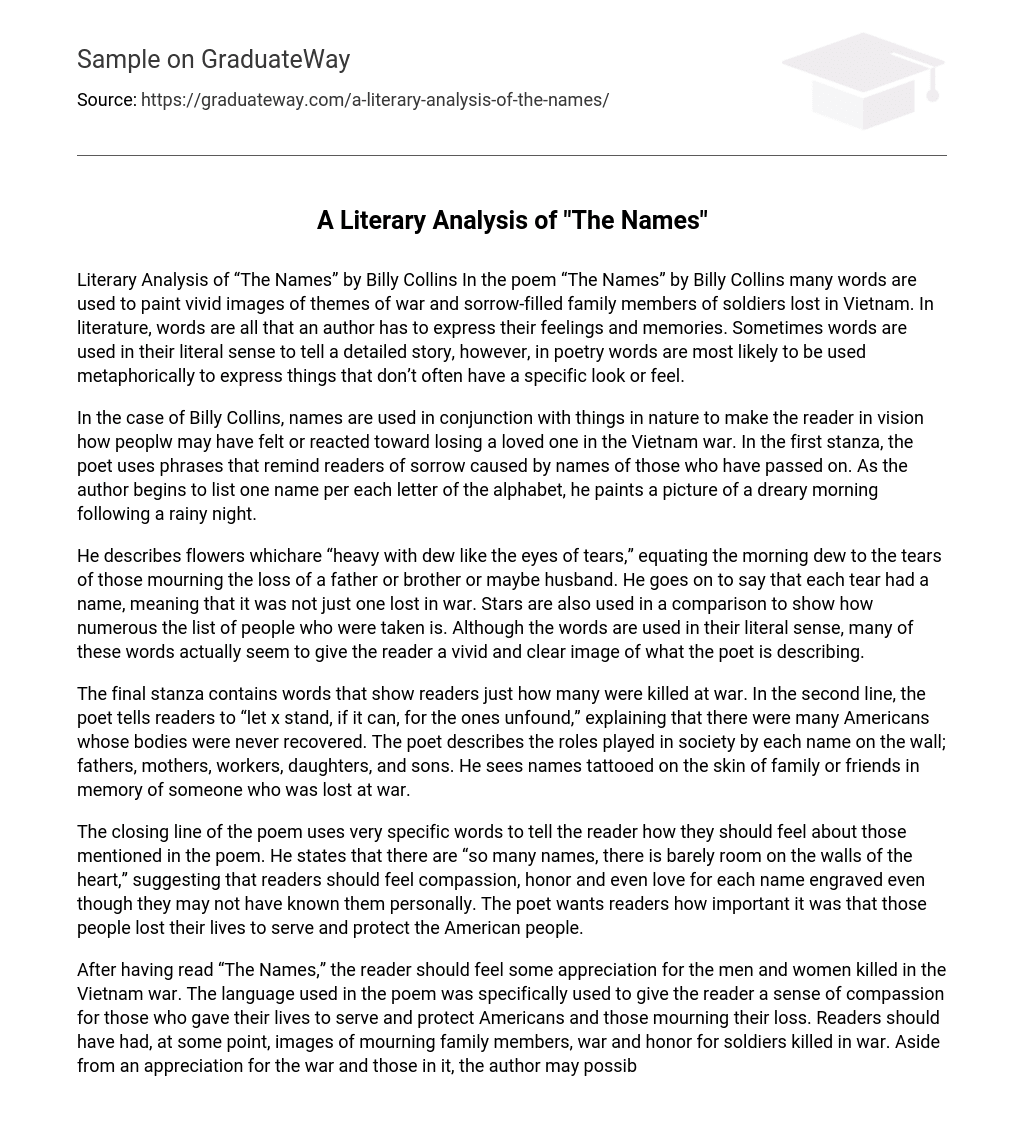Literary Analysis of “The Names” by Billy Collins In the poem “The Names” by Billy Collins many words are used to paint vivid images of themes of war and sorrow-filled family members of soldiers lost in Vietnam. In literature, words are all that an author has to express their feelings and memories. Sometimes words are used in their literal sense to tell a detailed story, however, in poetry words are most likely to be used metaphorically to express things that don’t often have a specific look or feel.
In the case of Billy Collins, names are used in conjunction with things in nature to make the reader in vision how peoplw may have felt or reacted toward losing a loved one in the Vietnam war. In the first stanza, the poet uses phrases that remind readers of sorrow caused by names of those who have passed on. As the author begins to list one name per each letter of the alphabet, he paints a picture of a dreary morning following a rainy night.
He describes flowers whichare “heavy with dew like the eyes of tears,” equating the morning dew to the tears of those mourning the loss of a father or brother or maybe husband. He goes on to say that each tear had a name, meaning that it was not just one lost in war. Stars are also used in a comparison to show how numerous the list of people who were taken is. Although the words are used in their literal sense, many of these words actually seem to give the reader a vivid and clear image of what the poet is describing.
The final stanza contains words that show readers just how many were killed at war. In the second line, the poet tells readers to “let x stand, if it can, for the ones unfound,” explaining that there were many Americans whose bodies were never recovered. The poet describes the roles played in society by each name on the wall; fathers, mothers, workers, daughters, and sons. He sees names tattooed on the skin of family or friends in memory of someone who was lost at war.
The closing line of the poem uses very specific words to tell the reader how they should feel about those mentioned in the poem. He states that there are “so many names, there is barely room on the walls of the heart,” suggesting that readers should feel compassion, honor and even love for each name engraved even though they may not have known them personally. The poet wants readers how important it was that those people lost their lives to serve and protect the American people.
After having read “The Names,” the reader should feel some appreciation for the men and women killed in the Vietnam war. The language used in the poem was specifically used to give the reader a sense of compassion for those who gave their lives to serve and protect Americans and those mourning their loss. Readers should have had, at some point, images of mourning family members, war and honor for soldiers killed in war. Aside from an appreciation for the war and those in it, the author may possibly have intended for the reader to take away some sort of appreciation for poetry as well.





